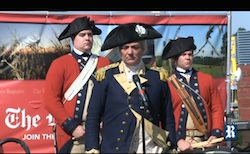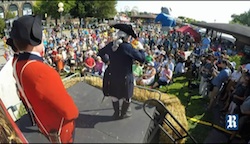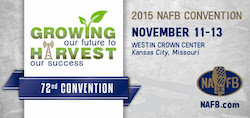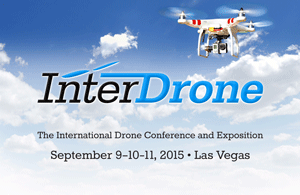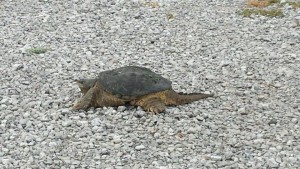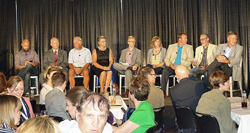On Tuesday night, the Mill City Museum in downtown Minneapolis was filled with conversation about agriculture at the fifth annual Food Dialogue, hosted by the US Farmers and Rachers Alliance(USFRA).
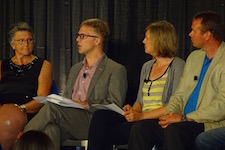 The event featured seven very diverse panelists, highlighting the diverse ranges of expertise that exist within food production. Bill Gordon, fourth generation soybean farmer; Jen Haugen, a registered dietician formerly with Hy-Vee grocery; and Steve Peterson, the recently retired Director of Sustainable Sourcing with General Mills all play different roles within food production and have different interests and thoughts on certain issues, but the Dialogue showcased that at their center, everyone is fighting on the same side.
The event featured seven very diverse panelists, highlighting the diverse ranges of expertise that exist within food production. Bill Gordon, fourth generation soybean farmer; Jen Haugen, a registered dietician formerly with Hy-Vee grocery; and Steve Peterson, the recently retired Director of Sustainable Sourcing with General Mills all play different roles within food production and have different interests and thoughts on certain issues, but the Dialogue showcased that at their center, everyone is fighting on the same side.
“We all are trying to do the right thing, we all have the same value of wanting to serve good food that’s good for everyone,” said Haugen in an interview following the dialogue.Interview with Jen Haugen, dietician
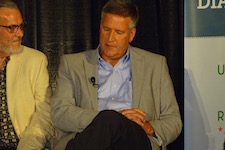 “I think that the issue at hand is around feeding a couple billion more people and preserving our planet,” Peterson said. “We need to join together and learn from each other to solve this very important issue for our future.” Interview with Steve Peterson, retired General Mills
“I think that the issue at hand is around feeding a couple billion more people and preserving our planet,” Peterson said. “We need to join together and learn from each other to solve this very important issue for our future.” Interview with Steve Peterson, retired General Mills
USFRA Food Dialogues Minneapolis Photo Album
Although some panelists were organic farmers that may prefer not to use the same practices as conventional farmers like Gordon, he agreed that “We’re all on the same page. We’re all about food quality, quantity, and price. The people who really understand or want to understand where their food comes from learn from both sides. I learned some things from the organic guys tonight, and they know they need to learn some things from us as well.”
The major idea discussed in relation to how agriculture should move forward with future challenges was the concept of sustainability, whose loose definition has ignited controversy for years. A point brought up repeatedly was that farmers, and the industries of agriculture and food science have always been centered on utilizing and advancing sustainable practices, and that our consumer base has been littered with misinformation stating otherwise.
Gordon admits that farmers have done a poor job being completely transparent in their work, especially as more consumers have become disconnected from agriculture and unable to see into the industry: “We have been so focused on growing food that we forget to tell people what we’re doing.”
Gordon is concerned about the increase in sensationalized activist movements that act to create fear and denounce the practices of conventional agriculture, groups like Greenpeace, that have made a huge presence on the internet and have information that is more readily available to consumers than that of the agriculture industry.
“If you go back in history and look at major environmental issues, the groups that really cared actually got together and solved them,” Gordon recalls. “The government didn’t tell us to stop [spraying DDT], the farmers worked together with the environmental groups. The problem is the groups who are above that, who are profiting off of hysteria and sending things out saying that the food we raise is going to kill you and your children.” Interview with Minnesota farmer Bill Gordon
Peterson’s thoughts on misinformation and opposition rang in line with that of the other panelists: “I think that food production is a fairly sacred business, and we all should take an interest in it,” he said, “and yet there’s a lot of misinformation. It’s all of our responsibilities, for those who don’t know and those who do, to be able to come together and have a greater awareness about how great our food supply is, and how critical it is to our future.”
As for how to check the validity of a source, Haugen suggests, “if you’re in doubt, go to someone that’s a professional, like a registered dietitian or a farmer. I think that the more you know, the more you can actually eat


